Deconstructing Hezbollah leader’s speech and its significance amid Gaza war
By Xavier Villar
Hezbollah leader Sayyed Hassan Nasrallah delivered a power-packed and strategically important speech on Friday, which was analyzed by political pundits across the world.
It is, however, important to note that the interpretation most Western experts have given to his words does not correspond to the correct interpretation.
This lack of comprehension is due to a lack of knowledge about the specific discursive characteristics of the Hezbollah resistance movement and the entire Axis of Resistance.
In other words, Sayyed Hassan Nasrallah's speech was timed and delivered on his own terms, without being constrained by the Western political framework.
In a broader sense, this is one of the distinctive characteristics of the Axis of Resistance: its discursive autonomy, which is perceived from the perspective that the West is no longer the central normative point, as it no longer enjoys hegemony.
Therefore, one cannot comprehend Nasrallah's words without taking this aspect into account.
Furthermore, the lack of understanding leads most of these experts to disregard the current situation in Lebanon and along the northern border of occupied Palestine, where Hezbollah is already engaged in combat against the Zionist occupation.
According to their own reports, the Lebanese resistance has destroyed at least nine Zionist tanks, displaced over 65,000 Zionist settlers, and inflicted casualties on 120 Zionist soldiers.
At the same time, 59 of its own members have been martyred in the process.
Additionally, it is crucial to note that from a strategic perspective, Hezbollah's actions are preventing the Zionist military from focusing entirely on the besieged Gaza Strip.
Therefore, it makes no sense to interpret Nasrallah's words as a "confirmation of de-escalation." The very discourse made it clear to the contrary.
The Hezbollah leader not only threatened the Zionist entity with a more substantial response if it continued its genocide in Gaza but also directed attention to the United States, which he held directly responsible for the situation in the besieged coastal territory.
As pointed out by Professor Amal Saad, this is profoundly significant. On one hand, it underscores Hezbollah's willingness to attack the United States if it continues to refuse a ceasefire in Gaza.
On the other hand, it acknowledges the lack of sovereignty and autonomy of the Zionist entity, which the Secretary-General of Hezbollah described as an "executive tool of the United States."
Nasrallah's analysis, from a political standpoint, is highly pertinent to understanding the situation.
If we define "power" as the capacity for autonomous action, it becomes evident that the Israeli regime cannot be considered a power in the truest sense, as its ability to act is fundamentally dependent on external support from the United States and other allies.
All of this again underscores the necessity of comprehending Nasrallah's discourse within its own political-ideological terms. It is the group that determines its own timeline, a point that most Western analysts appear to overlook.
In this context, it's crucial to recall that in their victory against the Zionist army in 2006, Hezbollah only engaged a few hundred of its members in direct combat.
This highlighted the importance of understanding the Lebanese resistance’s political-military strategy on its own terms. In 2006, the group was estimated by American and Zionist sources to have around 5,000 members.
People have gathered at Tehran's Imam Hussain (as) Square to listen to the much-awaited speech of Hezbollah Secretary General Sayyed Hassan Nasrallah pic.twitter.com/5tFD9Q7WUo
— Press TV (@PressTV) November 3, 2023
Today, according to those same sources, Hezbollah has more than 100,000 members and possesses a much more modern arsenal that is capable of annihilating the regime in Tel Aviv.
From a political-discursive perspective, it can be argued that experts who were expecting a declaration of war from Hezbollah understand resistance through the limited lens of a binary: war or peace.
This binary approach, rooted in a discourse external to the group itself, fails to consider, as previously mentioned, that Hezbollah is already directly involved in the conflict against the Zionist occupation., as Nasrallah himself stated on Friday.
The extent of the group's participation is a decision solely within their purview. To expect otherwise would involve imposing a political-discursive framework that is foreign to the group and ultimately does not benefit the entire Axis of Resistance.
This discursive imposition can also be found in the characterization of Hezbollah as an "Iranian proxy." The sponsor-proxy doctrine simplifies the multifaceted relationship between Iran and Hezbollah into a mere matter of material exchange, where Tehran, as a state, uses its power to control the subordinate group.
Apart from being an oversimplified view, this perspective is built upon epistemic foundations that include the category of proxy alongside other terms like "terrorist" and "extremist" within a chain of equivalence.
It is a prescriptive category that seeks to criminalize resistance movements challenging the Western hegemonic project in the region, especially those that articulate their resistance to the Western project in a non-secular language.
The proxy category is, therefore, another tool used by the West (understood as an ideology rather than geography) to divide the region into friends and foes, meaning a political division of the region that views Iran and Hezbollah as strategic threats to its interests.
Hezbollah is an autonomous actor, both in political and discursive terms. It is precisely because of this autonomy that it becomes essential to interpret Hezbollah (as well as other members of the Axis of Resistance) within their own framework and not through the lens of Western political language.
Reading the Axis of Resistance through a grammar that is foreign to it only serves to perpetuate the criminalization of any attempt to dismantle the Western epistemology in the region.
Xavier Villar is a Ph.D. in Islamic Studies and researcher based in Spain.
(The views expressed in this article do not necessarily reflect those of Press TV)
Lebanese continue to fearlessly march home in south despite Israeli aggression
VIDEO | Qassam commander killed in Israeli drone strike on West Bank
Trump’s bellicose rhetoric to ‘clean out’ Gaza tied to deep pockets of Zionist lobby
2 Israeli reservists detained on suspicion of ‘spying for Iran’
Iran: Israel's violations of Lebanon ceasefire clear example of war crime
Putin congratulates Lukashenko on ‘convincing’ re-election as Belarus president
Iran Army ground forces kick off offensive, security drill
Qalibaf: Israel failed to sell false notion of victory over Resistance as Hamas 'alive'


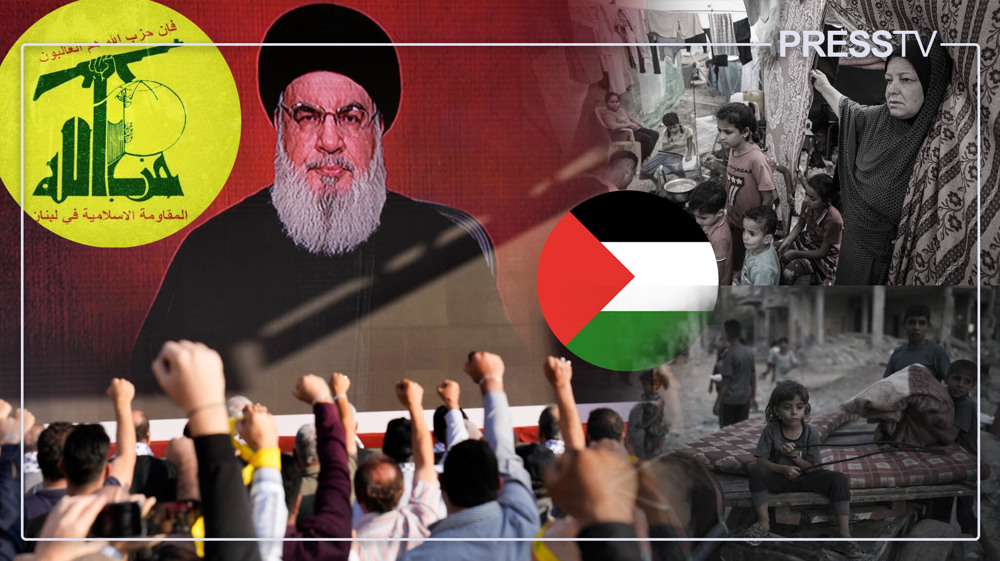
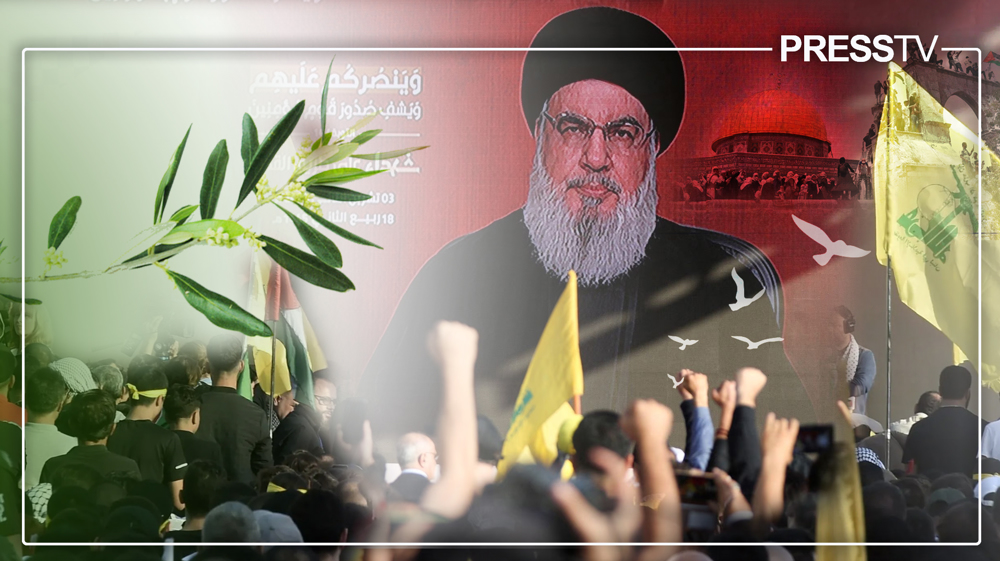

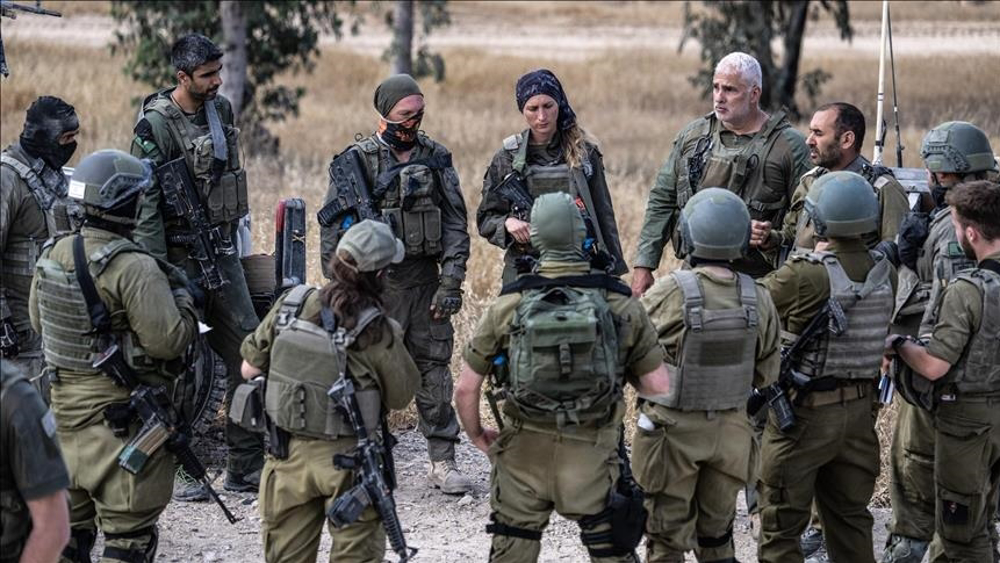
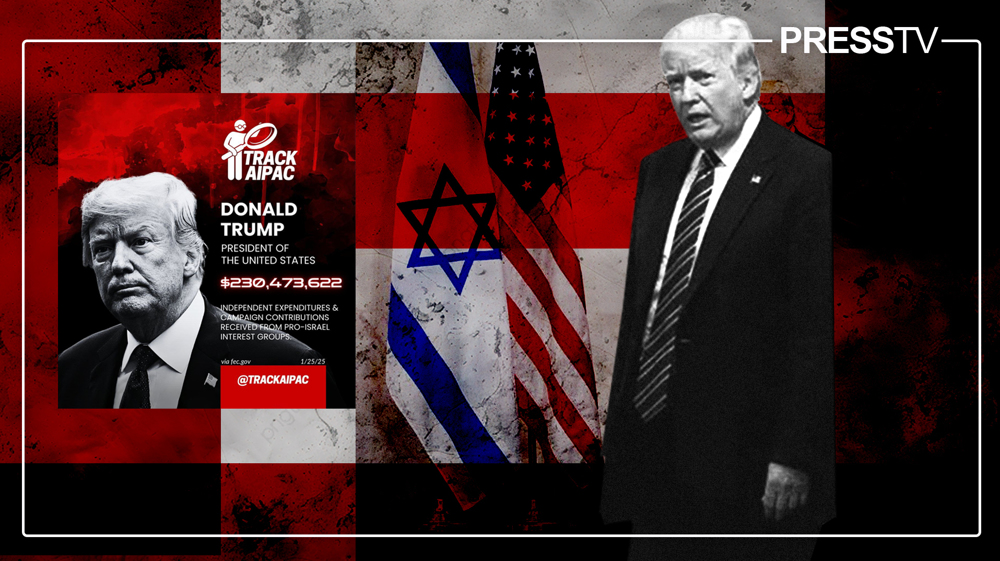



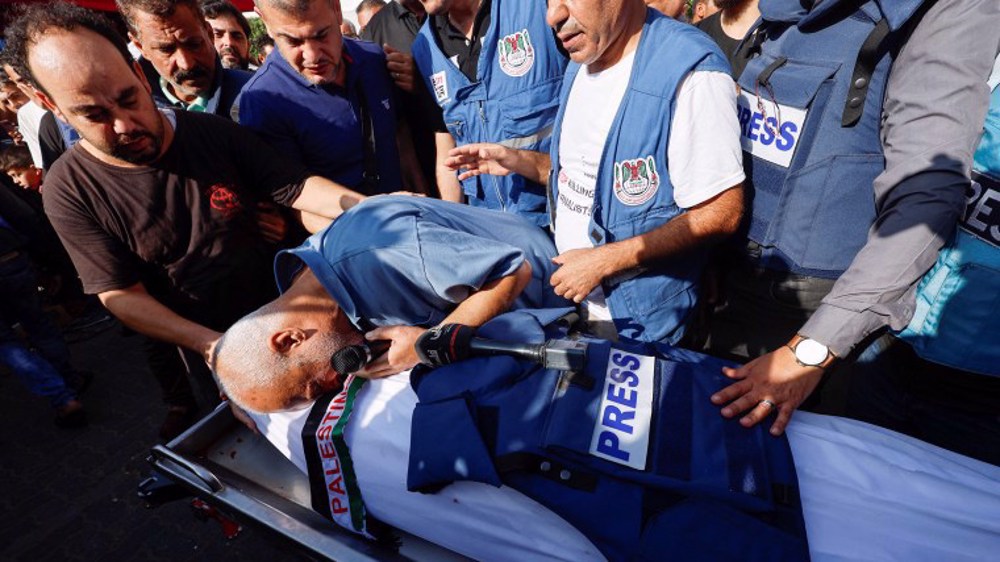

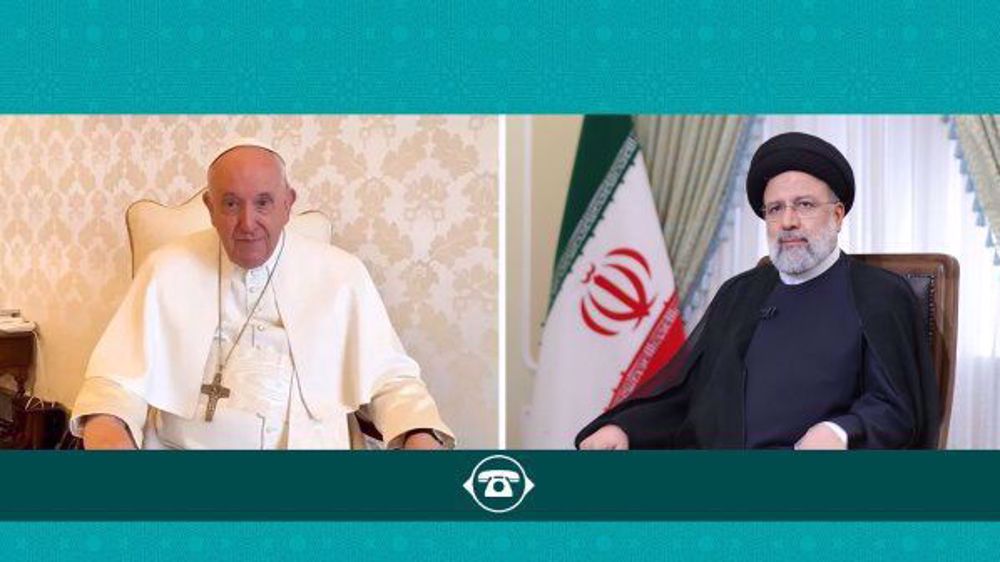
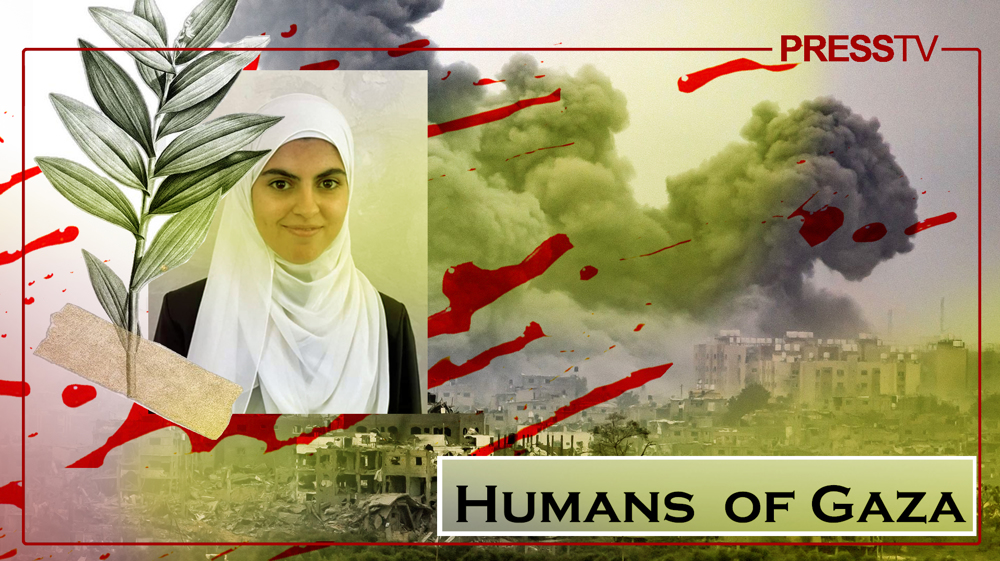
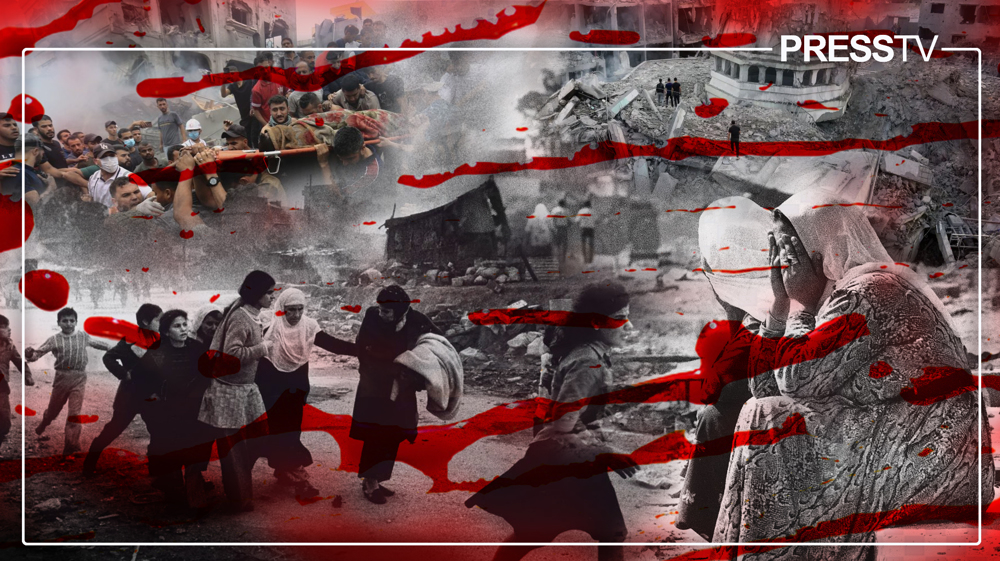

 This makes it easy to access the Press TV website
This makes it easy to access the Press TV website